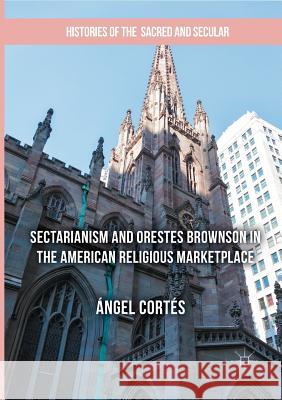Sectarianism and Orestes Brownson in the American Religious Marketplace » książka
topmenu
Sectarianism and Orestes Brownson in the American Religious Marketplace
ISBN-13: 9783319847672 / Angielski / Miękka / 2018 / 178 str.
Kategorie BISAC:
Wydawca:
Palgrave MacMillan
Seria wydawnicza:
Język:
Angielski
ISBN-13:
9783319847672
Rok wydania:
2018
Wydanie:
Softcover Repri
Ilość stron:
178
Waga:
0.23 kg
Wymiary:
21.01 x 14.81 x 1.02
Oprawa:
Miękka
Wolumenów:
01
Dodatkowe informacje:
Wydanie ilustrowane











